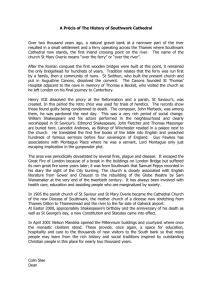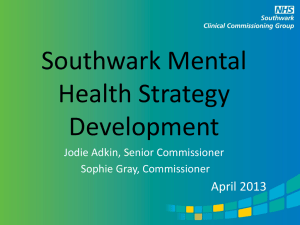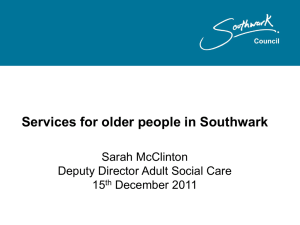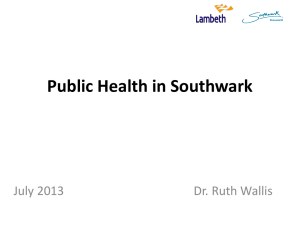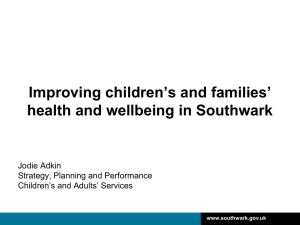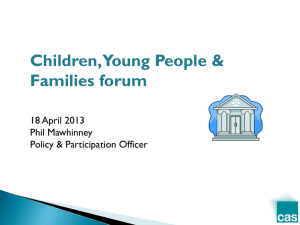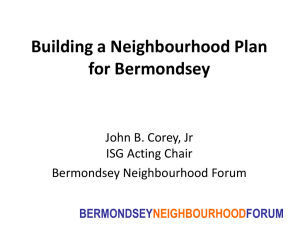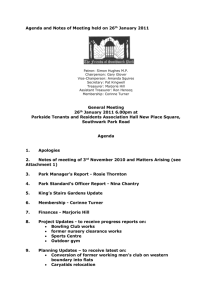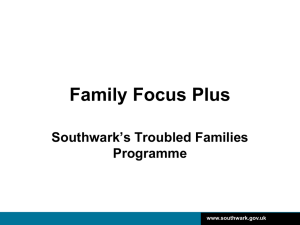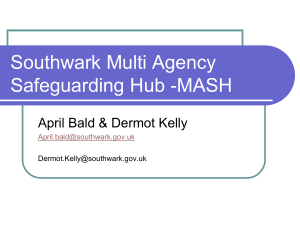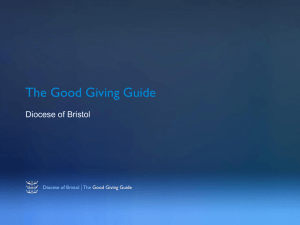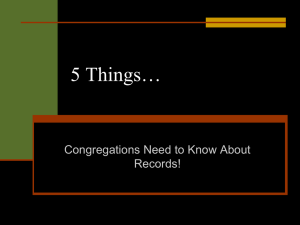Safeguarding children and adults who may be vulnerable Training
advertisement
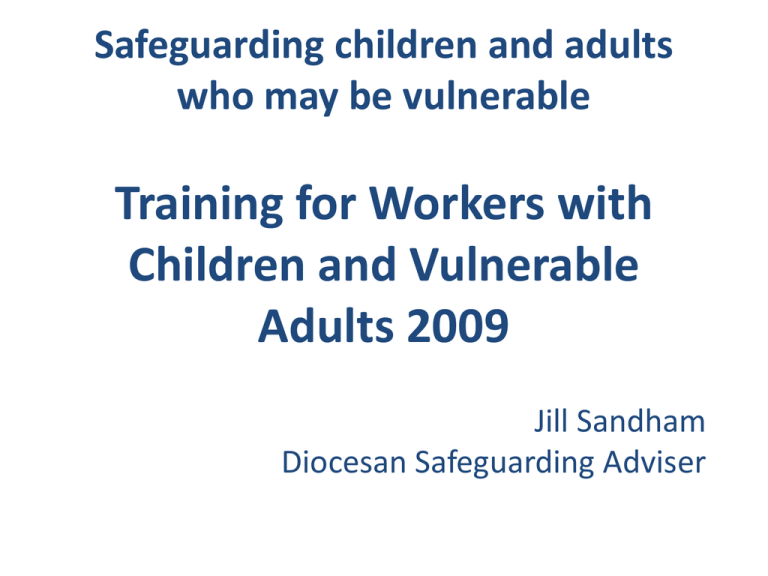
Safeguarding children and adults who may be vulnerable Training for Workers with Children and Vulnerable Adults 2009 Jill Sandham Diocesan Safeguarding Adviser The Diocese of Southwark A Safe Church Safe or unsafe? •A father bathes with his five year old daughter •A woman cares for her father by drawing money from his bank account, shopping for him, and keeping the change •A husband does not allow his wife access to any money except what he gives her each week •A severely depressed woman cares alone for her two children under 5. The Diocese of Southwark A Safe Church Terminology •Who is a child? oAll children and young people under the age of 18 •Who is a vulnerable adult? oAny adult aged 18 or over who, by reason of mental or other disability, age, illness or other situation is permanently or for the time being unable to take care of him or herself, or to protect him or herself against significant harm or exploitation. The Diocese of Southwark A Safe Church What factors may make adults vulnerable? •Age •Physical or mental health •Physical or learning disability •Bereavement and relationship breakdown •History of abuse •History of offending •Substance or alcohol dependence The Diocese of Southwark A Safe Church What factors may make adults vulnerable? Implications: Vulnerability is not a permanent state Vulnerability is not always visible All of us are vulnerable at different times of life Vulnerable people may also pose risk and cause harm. The Diocese of Southwark A Safe Church Terminology •What is domestic abuse? oAny incident of threatening behaviour, violence or abuse (psychological, physical, sexual, financial or emotional) between adults who are or have been intimate partners or family members, regardless of gender or sexuality. The Diocese of Southwark A Safe Church Challenges of the church environment •We welcome all comers • Our membership is fluid – we never know who may turn up, and often know little about them •We may have both an alleged victim and an alleged perpetrator as members of our community •We attract vulnerable people The Diocese of Southwark A Safe Church Challenges of the church environment • Leaders are not professionally trained to work with vulnerable people • Those in prominent roles – especially clergy – are perceived as people who can be trusted • Blurring of boundaries between church and home life - potential opportunities for grooming. The Diocese of Southwark A Safe Church Scenario 1 A 9 year old child who comes to church without his parents is generally disruptive in Sunday School. He can be physically aggressive to other children, swears a lot, and doesn’t concentrate on the activities set. •How can you include the child, keep others safe and enable the group to participate in the activities? Ref: pages 4-7 to 4-9;4-15; 4-41 to 4-43 The Diocese of Southwark A Safe Church Scenario 2 Someone tells you something in confidence – a mother of two young children in the children’s club says that her husband is abusing her; or someone you visit tells you that her carer is taking money from her purse. •What would you do/who would you tell? Ref: pages 6-3; 6-6 to 6.8; 6-17; 9-17 to 9-18 The Diocese of Southwark A Safe Church Scenario 3 A member of your congregation has severe mobility impairment, uses a wheelchair and has limited verbal communication. •How would you ensure that the church is a safe environment for her, and that she is treated with respect and has choices? Ref: pages 4-11 to 4-13; 4-15 to 4-16 The Diocese of Southwark A Safe Church Scenario 4 Mr B starts attending your church. After a week or two he tells you that he has a past conviction which related to a child (who was then his stepdaughter), but that he was wrongly convicted. •Who may be at risk of harm? •What action would you need to take? •What is your responsibility towards Mr B? The Diocese of Southwark A Safe Church Scenario 5 You have a pastoral team, co-ordinated by your SPA; members have various roles, including: taking communion to those who are housebound; visiting those who are sick; follow-up visits to bereaved people of funerals done in the parish; transporting people to and from church. •What are the safeguarding issues? •Who needs protection? •What guidelines would you need to ensure are in place?
